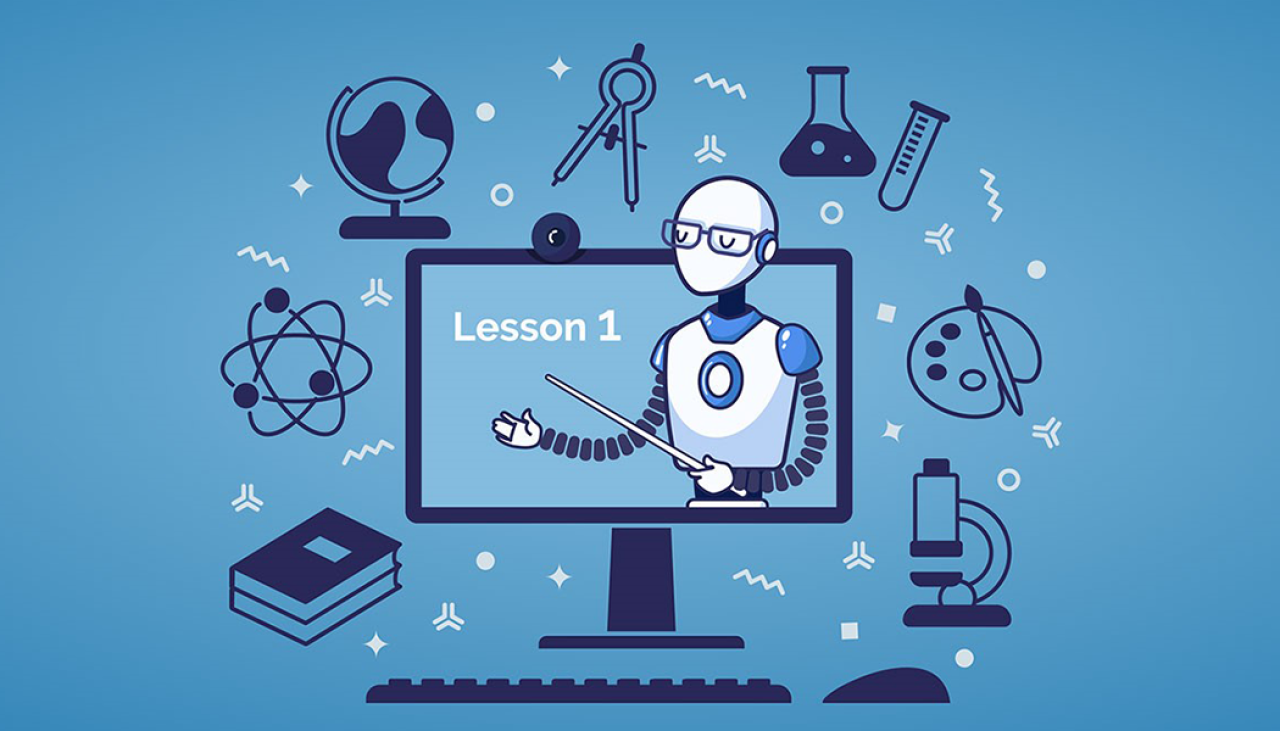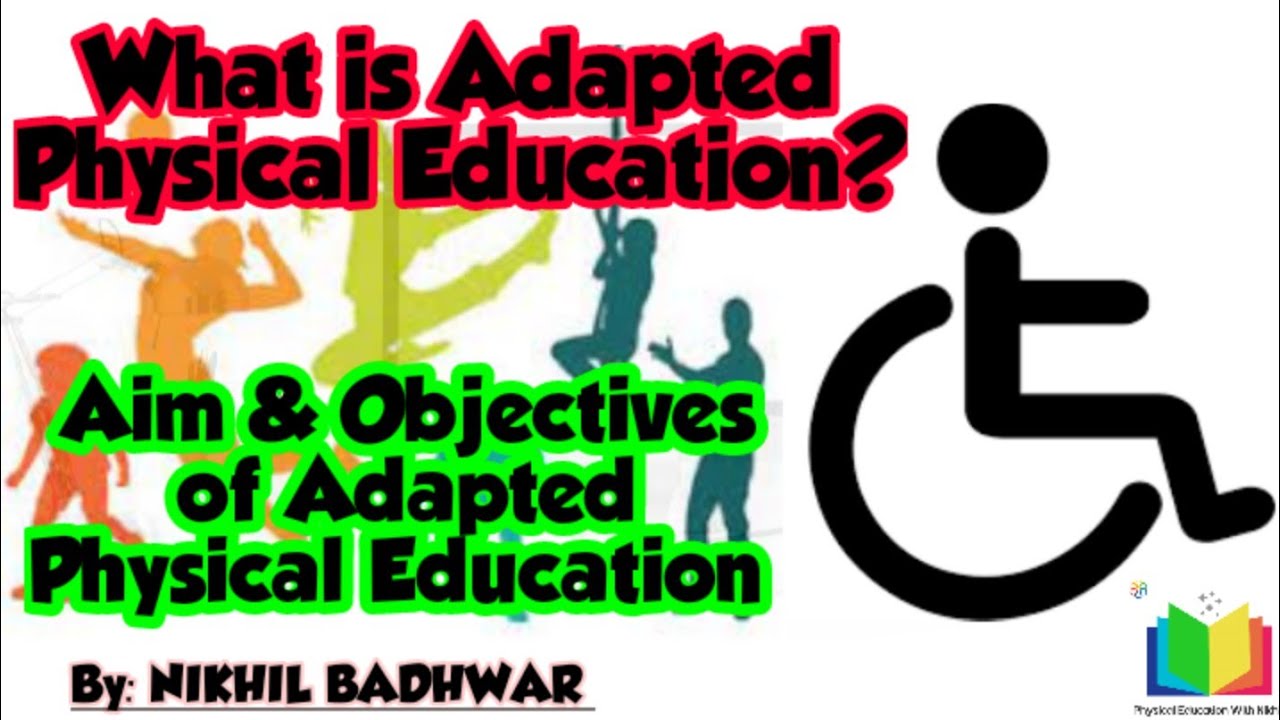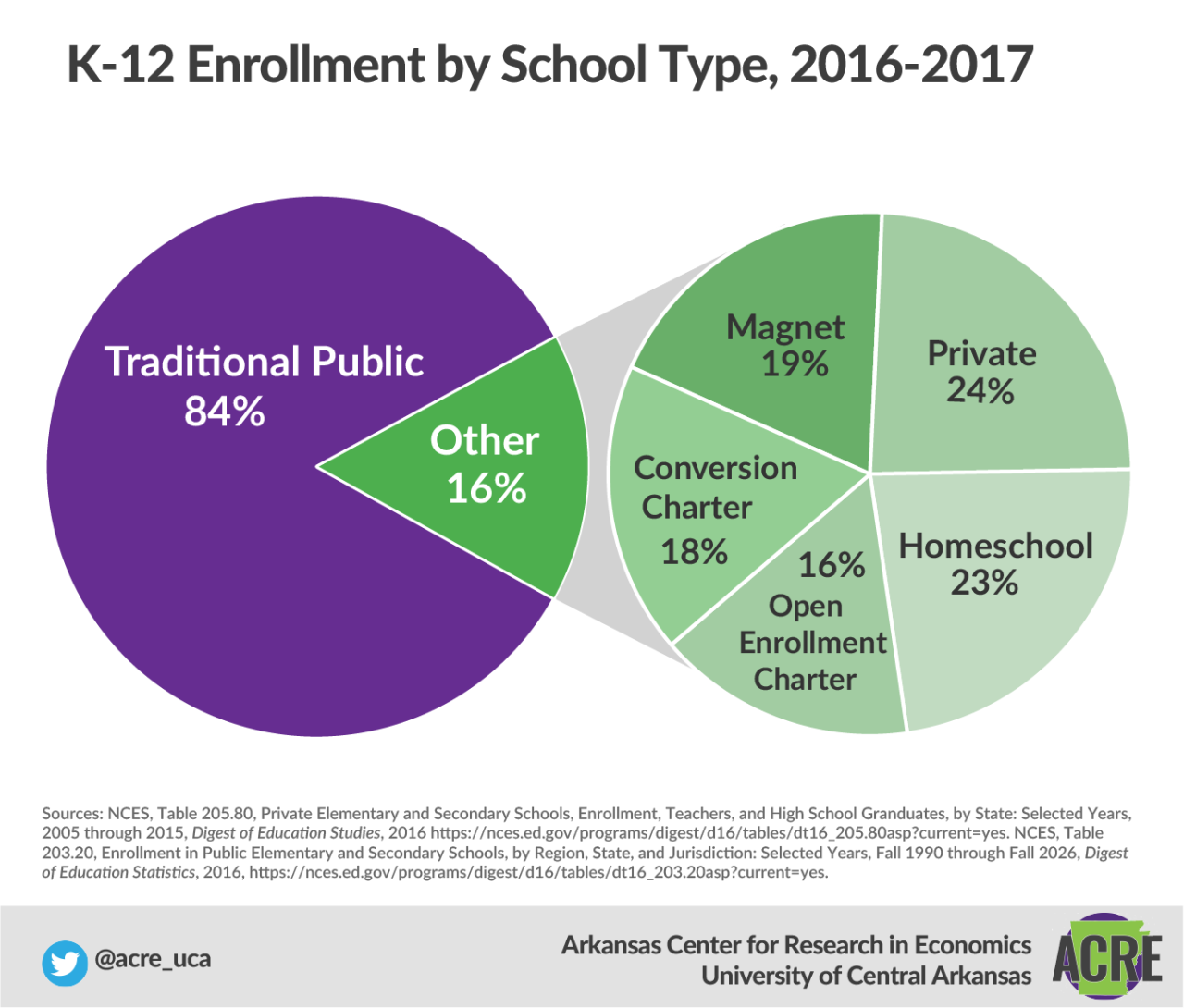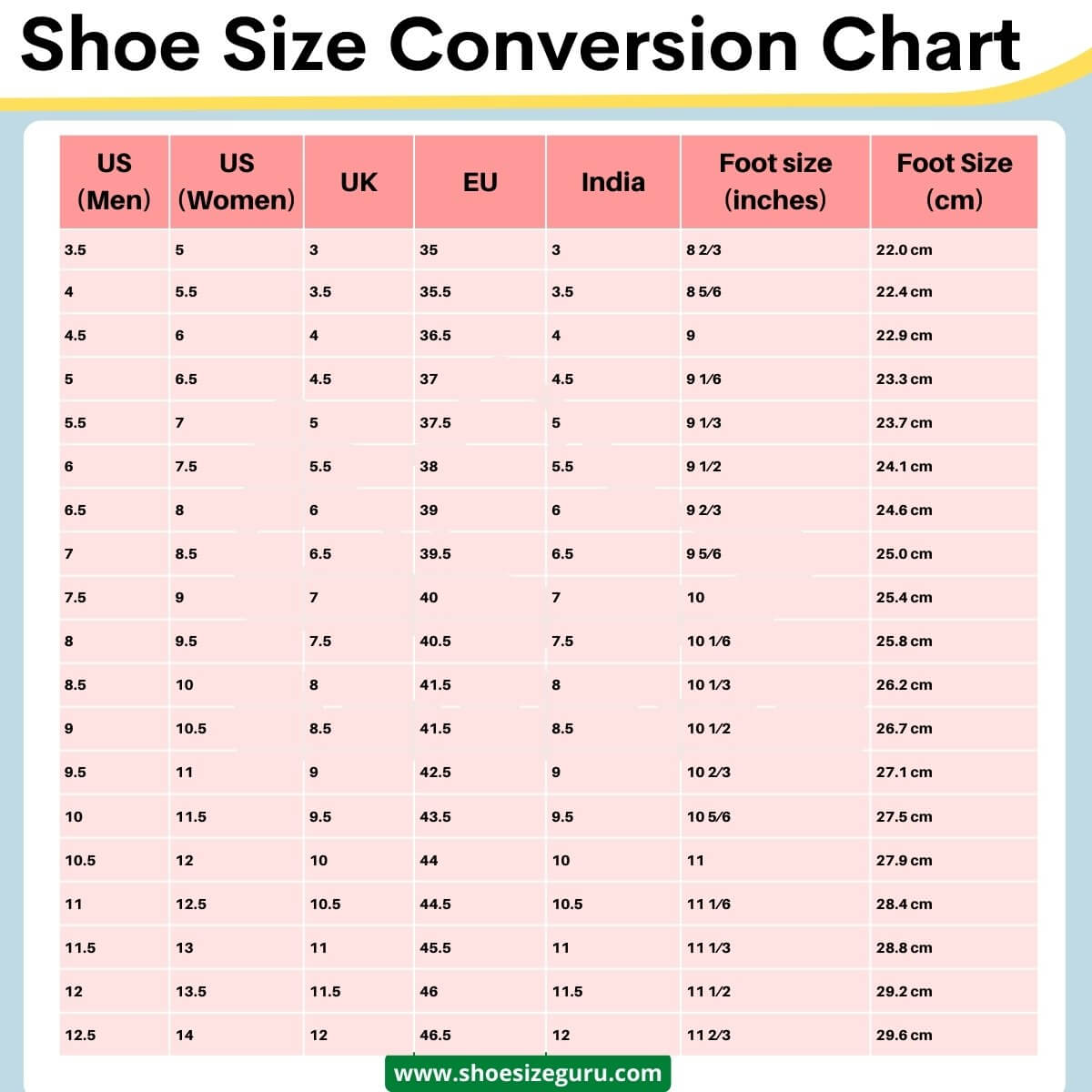What is continuing education? It’s a journey of ongoing learning and development that goes beyond formal education. Whether you’re seeking to enhance your career prospects, expand your knowledge base, or simply pursue personal growth, continuing education provides a wealth of opportunities to acquire new skills and stay relevant in a rapidly evolving world.
Continuing education encompasses a diverse range of programs and courses designed to cater to individuals at various stages of their lives and careers. From professional certifications and online courses to workshops and seminars, there’s a wealth of options to choose from, each tailored to specific needs and interests.
What is Continuing Education?
Continuing education refers to any formal or informal learning experience that takes place after an individual has completed their initial education, such as a high school diploma or a college degree. It encompasses a wide range of programs, courses, and activities designed to enhance knowledge, skills, and abilities in various fields.
Definition of Continuing Education
Continuing education is an ongoing process of learning that individuals undertake to expand their knowledge, skills, and competencies beyond their initial education. It is a crucial aspect of personal and professional development, enabling individuals to adapt to evolving demands in their chosen fields and stay relevant in the ever-changing world.
Purpose and Significance of Continuing Education
The purpose of continuing education is multifaceted. It aims to:
- Update knowledge and skills:As industries evolve and technology advances, continuing education helps individuals stay abreast of the latest trends and acquire new skills to remain competitive in the workforce.
- Enhance career prospects:Continuing education can lead to promotions, salary increases, and new job opportunities by demonstrating a commitment to professional growth.
- Expand professional networks:Continuing education programs often provide opportunities to connect with other professionals in the field, fostering networking and collaboration.
- Promote personal growth and development:Beyond career benefits, continuing education can contribute to personal growth by expanding horizons, fostering intellectual curiosity, and developing new interests.
Examples of Continuing Education Programs
Continuing education programs are available in a wide range of formats and disciplines. Some common examples include:
- Professional development courses:These courses focus on specific skills and knowledge required for advancement in a particular profession, such as project management, leadership skills, or financial analysis.
- Certification programs:Certification programs demonstrate proficiency in a specific area, often leading to increased credibility and earning potential. Examples include certified public accountant (CPA), certified information systems security professional (CISSP), or certified project management professional (PMP).
- Workshops and seminars:These short-term programs provide focused training on a specific topic or skill, such as data analysis, social media marketing, or public speaking.
- Online courses and MOOCs:Online learning platforms offer flexible and accessible continuing education options, covering a vast range of subjects. Massive open online courses (MOOCs) are particularly popular for individuals seeking to expand their knowledge in diverse fields.
- Conferences and trade shows:Attending industry conferences and trade shows provides opportunities to network with peers, learn about new developments, and gain insights from experts.
Benefits of Continuing Education
Pursuing continuing education offers numerous advantages for individuals, both professionally and personally.
Advantages for Individuals
Continuing education provides a range of benefits for individuals, including:
- Increased earning potential:Individuals with updated skills and certifications often command higher salaries and are more competitive in the job market.
- Improved job security:As technology and industry demands evolve, individuals with continuing education are better equipped to adapt and remain relevant, enhancing their job security.
- Enhanced career advancement opportunities:Continuing education demonstrates a commitment to professional growth, which can open doors to promotions and leadership roles.
- Greater job satisfaction:Staying up-to-date with industry trends and acquiring new skills can lead to increased job satisfaction and a sense of accomplishment.
- Personal growth and development:Continuing education can expand horizons, stimulate intellectual curiosity, and foster a lifelong love of learning.
Professional Benefits of Continuing Education, What is continuing education
Continuing education has a significant impact on professional development, leading to:
- Increased knowledge and expertise:Continuing education programs provide opportunities to acquire new knowledge and skills, enhancing expertise in a particular field.
- Enhanced credibility and reputation:Certifications and professional development programs can enhance credibility and reputation, making individuals more desirable to employers and clients.
- Improved problem-solving abilities:Continuing education often involves practical applications and case studies, sharpening problem-solving skills and critical thinking abilities.
- Greater leadership potential:Programs focused on leadership development, communication skills, and strategic thinking can equip individuals with the skills necessary for leadership roles.
Personal Growth and Development Opportunities
Beyond professional benefits, continuing education offers opportunities for personal growth and development, such as:
- Expanded horizons:Continuing education exposes individuals to new ideas, perspectives, and fields of study, broadening their intellectual horizons.
- Increased confidence:Acquiring new knowledge and skills can boost confidence and self-esteem, leading to a more positive outlook on life.
- Improved communication and interpersonal skills:Many continuing education programs incorporate elements of communication, teamwork, and collaboration, enhancing interpersonal skills.
- Enhanced creativity and innovation:Exposure to new ideas and concepts can stimulate creativity and innovative thinking, leading to new solutions and approaches.
Types of Continuing Education: What Is Continuing Education
Continuing education programs are diverse, catering to a wide range of needs and interests. They can be categorized based on their focus, format, and target audience.
Categorization of Continuing Education Programs
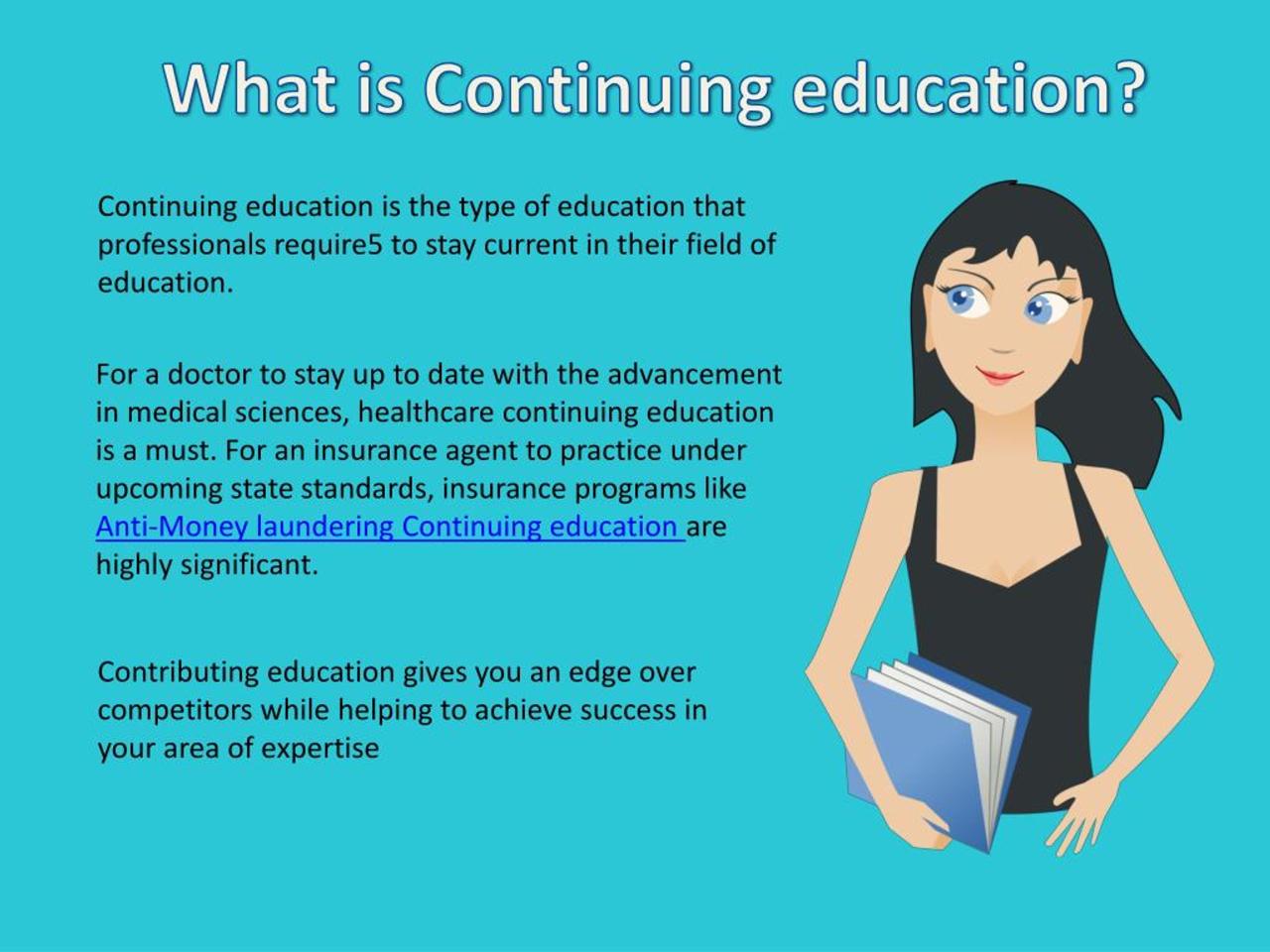
Continuing education programs can be categorized based on their focus, format, and target audience. Some common categories include:
- Subject-specific programs:These programs focus on a specific discipline, such as business, technology, healthcare, or education. They offer courses and certifications related to the specific field.
- Skill-based programs:These programs focus on developing specific skills, such as communication, leadership, project management, or technical skills. They often involve hands-on training and practical exercises.
- Career-focused programs:These programs are designed to help individuals advance their careers, such as management training, executive education, or professional development programs tailored to specific industries.
- Personal interest programs:These programs cater to individuals’ personal interests, such as photography, cooking, languages, or art. They offer a chance to learn for enjoyment and personal enrichment.
Characteristics and Focus of Different Types of Programs
Each type of continuing education program has unique characteristics and a specific focus:
- Subject-specific programs:These programs delve deep into a particular field, providing specialized knowledge and skills required for advancement in that area.
- Skill-based programs:These programs focus on developing practical skills that are transferable across various industries and professions.
- Career-focused programs:These programs provide targeted training and development opportunities to help individuals advance their careers, often incorporating networking and mentorship components.
- Personal interest programs:These programs offer a chance to explore personal interests and develop new hobbies, promoting personal growth and well-being.
Examples of Continuing Education Programs for Different Professions
Continuing education programs are available for a wide range of professions, including:
- Healthcare:Nurses, doctors, and other healthcare professionals are required to complete continuing education courses to maintain their licenses and stay updated on the latest medical advancements.
- Education:Teachers, professors, and other educators need to participate in professional development programs to enhance their teaching skills and stay current with educational trends.
- Technology:Software developers, engineers, and other tech professionals require ongoing training to keep up with the rapid pace of technological innovation.
- Business:Managers, executives, and other business professionals benefit from continuing education programs that enhance their leadership skills, financial literacy, and strategic thinking.
Accessing Continuing Education
Individuals seeking continuing education have numerous resources available to help them identify and access suitable programs.
Identifying and Locating Suitable Programs
There are several ways to identify and locate continuing education programs:
- Professional organizations:Many professional organizations offer continuing education programs for their members, such as the American Medical Association (AMA) for doctors or the American Bar Association (ABA) for lawyers.
- Colleges and universities:Many colleges and universities offer continuing education programs, both online and in person, covering a wide range of subjects.
- Online learning platforms:Platforms like Coursera, edX, and Udemy offer a vast array of online courses and certifications, providing flexibility and accessibility.
- Government agencies:Some government agencies, such as the Department of Labor, offer training programs and resources for career development.
- Industry associations:Industry associations often organize conferences, workshops, and training programs for professionals in specific fields.
Resources for Finding Continuing Education Opportunities
Several resources can assist individuals in finding continuing education opportunities:
- Online directories:Websites like ContinuingEd.com and Ed2Go provide comprehensive directories of continuing education programs across various disciplines.
- Search engines:Using s related to your field or interests, you can search online for continuing education programs in your area or online.
- Professional networks:Connect with colleagues, mentors, and other professionals in your field to learn about relevant continuing education programs.
Evaluating the Quality and Relevance of Continuing Education Programs
When choosing a continuing education program, it’s essential to evaluate its quality and relevance to your goals. Consider the following factors:
- Accreditation:Look for programs accredited by reputable organizations, such as the Council for Higher Education Accreditation (CHEA) or the Distance Education Accrediting Commission (DEAC).
- Instructor qualifications:Ensure the instructors have expertise in the subject matter and relevant experience in the field.
- Curriculum:Review the curriculum to ensure it covers the topics and skills you need to develop.
- Program format:Choose a format that suits your learning style and schedule, such as online courses, in-person workshops, or blended learning programs.
- Cost and value:Consider the cost of the program and the potential return on investment in terms of career advancement and personal growth.
Importance of Continuing Education in the Modern Workplace
Continuing education is increasingly crucial in today’s dynamic work environment, characterized by rapid technological advancements, globalization, and evolving industry demands.
Relevance of Continuing Education in a Dynamic Work Environment

In a rapidly changing world, continuing education is essential for individuals to remain competitive and adaptable. It helps them:
- Adapt to new technologies:Technological advancements are constantly reshaping industries, making it essential for individuals to acquire new skills and knowledge to stay relevant.
- Embrace globalization:As businesses operate on a global scale, individuals need to develop intercultural competence and an understanding of diverse markets.
- Stay ahead of industry trends:Continuing education keeps individuals informed about the latest industry trends, enabling them to adapt to changing demands and opportunities.
Impact of Technological Advancements on the Need for Ongoing Learning
Technological advancements have significantly impacted the need for ongoing learning. As technology evolves, new skills and knowledge are required to operate effectively in various industries. For example:
- Data analytics:The rise of big data has created a demand for individuals skilled in data analysis, interpretation, and visualization.
- Artificial intelligence (AI):The increasing adoption of AI in various sectors requires individuals to understand AI concepts, algorithms, and applications.
- Cybersecurity:As cyber threats become more sophisticated, the need for cybersecurity professionals with specialized skills is growing.
Continuing Education for Career Advancement and Job Security
Continuing education can significantly enhance career advancement and job security in today’s competitive job market. It demonstrates:
- Commitment to professional growth:Employers value individuals who invest in their professional development, indicating a willingness to learn and adapt.
- Up-to-date skills and knowledge:Continuing education ensures individuals possess the latest skills and knowledge required for success in their chosen field.
- Adaptability and resilience:In a rapidly changing world, individuals with continuing education are better equipped to adapt to new challenges and opportunities.
Conclusion
In today’s dynamic environment, continuing education has become more than just an option; it’s a necessity. By embracing lifelong learning, individuals can stay ahead of the curve, adapt to emerging trends, and unlock their full potential. Whether you’re a seasoned professional seeking to enhance your skills or a recent graduate eager to embark on a fulfilling career path, continuing education provides the tools and knowledge to thrive in a competitive and ever-changing world.





